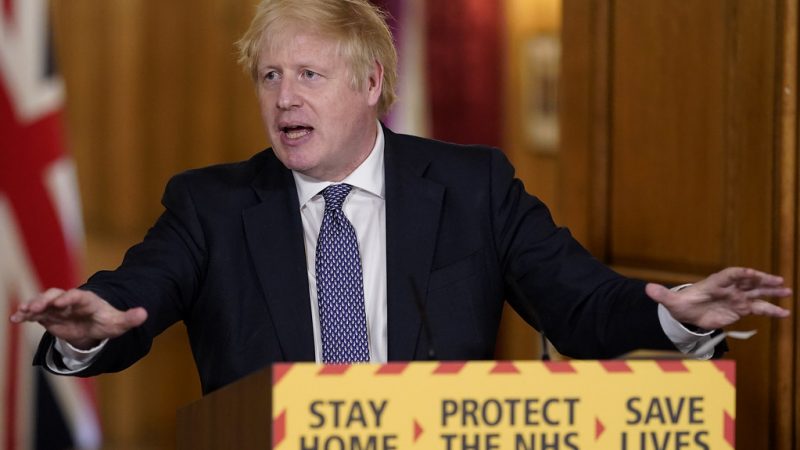We need a new approach to Covid and the economic crisis, based on local, community action and mutual aid, writes Karen Buck MP.

At a time of crisis, trust and community cohesion – slippery concepts though they may to define and measure – really do matter.
Without suspending our critical faculties, we need to have confidence in the messages and actions of government and of our fellow citizens. In fact, there is a strong case that the greater the confidence we have, the more we actually can ask questions and discuss the vital issues of the day without descending into rancour and blame, but let’s leave that on one side.
Given the anxiety about polarisation – especially in the aftermath of the Brexit referendum – and given the sometimes hideous nature of the social media ‘public square’, the initial response to Covid may have come as a surprise.
Squandered support
There was initially a very high level of support for the measures taken to control the virus. In the face of a real threat, almost regardless of political affiliation, people do want to know that the government is on their side and up to the job. There was also a warm and genuine surge of neighbourliness, both informal and more formal, through volunteering and the flowering of local Covid support groups.
Latest opinion research indicates that this is fraying fast – a fact which has pretty serious implications for public health and social cohesion. At the same time, there continues to be a very high level of support for changing aspects of the way we live- for ‘building back better’, for doing things differently.
Yet if the (newly elected!) government can’t even maintain public confidence for a few months, can’t convince people that we are in a shared enterprise in the face of the pandemic, its ability to sustain a consensus for longer term social change is very limited.
Whether this involves rising to the challenge of the post-Brexit world, new public health threats, adapting to climate change or responding to the damage poverty and inequality are wreaking on our communities, the language of trust and of shared enterprise is vital. Each of those tasks is daunting in itself. Add to the mix the disinformation, conspiracy theorising and sheer hate pumped into social media- sometimes as entirely deliberate acts of destabilisation, and they become harder still.
A new approach
Dealing with this requires consistency, competence and consensus-building at the top of government. And God knows, all these things are lacking at present. But it needs much more than that.
It needs a strategy across government which puts community resilience and cohesion at the heart of what it is doing, and takes practical steps to support it. First and foremost that involves giving resources and capacity back to local government.
Local councils have lost half their funding and have been bypassed during Covid. Yet it is at the local level where needs are best assessed, communication best targeted, civic and voluntary organisations best supported.
But there is much more. To take a few examples, the growing reliance on short-term private accommodation for low-income households increases enforced mobility and limits the extent to which millions of people are likely to participate and be invested in their communities.
This important point was flagged by the ‘Onward’ report, ‘The state of our social fabric’. It found that ‘just 47% of private renters feel they belong to their area’ and that ‘the growth of the private rented sector has contributed to declining social mobility’.
Home is where the hope is
Housing – decent, affordable, and stable – is critical. That’s why Labour is right to make social housebuilding and reform of the private sector central to our strategy.
We need, more than ever in the wake of the 2019 election, to learn from the work done by Yvette Cooper and others on ‘towns and identity’, recognising the extent to which the loss of symbolic services, transport links, well paid work and the growth of poverty have to be tackled.
In the area of social security, the structural reliance on sanctions and conditionality damages the relationships between individuals and the state, at a time when we urgently need to end destitution and support people in developing new skills and finding work.
In other areas of social policy – quality early years provision, the rebuilding of Sure Start and a reimagined youth service to support older children and teenagers can be transformative.
In planning, we must reject the centrally-imposed deregulation implied by Permitted Development and actively support localised, community-rooted ‘placemaking’.
Grassroots-up
We have four distinct, though linked, tasks: controlling Covid-19, protecting the economy, preparing for future threats and responding to the public hunger for a better way of living.
We can meet those challenges, but not with a top-down approach and not in a fragmented, divisive, distrusting culture.
We must build from the neighbourhood up, stress testing every action for how it contributes to social cohesion, civic engagement and mutual aid.
Karen Buck is the Labour MP for Westminster North.
To reach hundreds of thousands of new readers we need to grow our donor base substantially.
That's why in 2024, we are seeking to generate 150 additional regular donors to support Left Foot Forward's work.
We still need another 117 people to donate to hit the target. You can help. Donate today.



